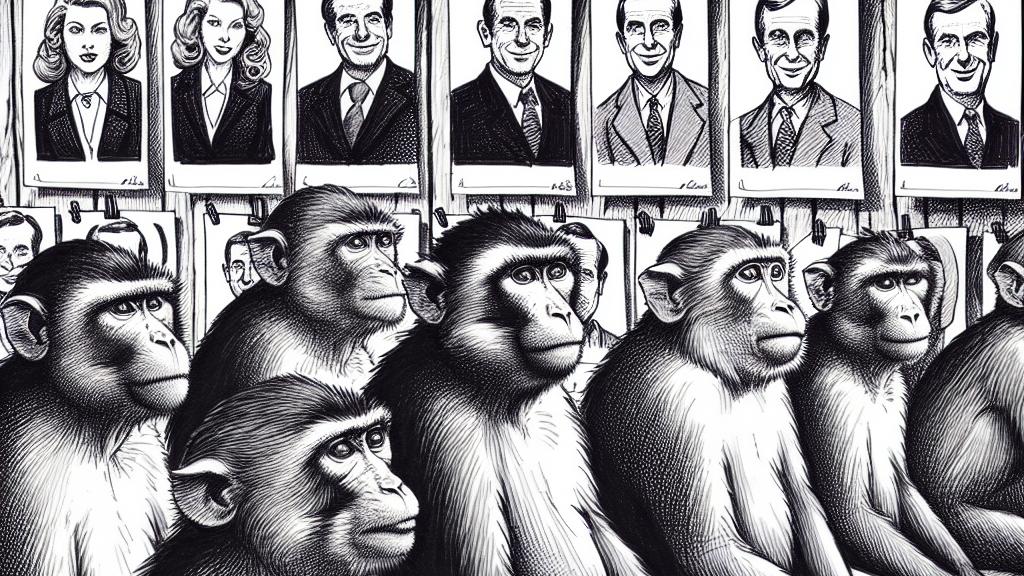Monkeys and Their Insights on Presidential Candidate Evaluation
Overview
- Monkeys reveal surprising preferences, mirroring human biases in candidate evaluation.
- Studies demonstrate that physical traits significantly sway voter decisions, impacting election outcomes.
- Research highlights profound evolutionary connections in our perceptions of authority and competence.

The Impact of Appearance on Voting
In the captivating world of U.S. presidential elections, the influence of physical appearance on voter behavior is both intriguing and profound. A notable study spearheaded by researchers from the University of Pennsylvania and Portugal's Champalimaud Center sought to uncover these dynamics by engaging monkeys in an uncommon task: analyzing photographs of political candidates. Astonishingly, these clever primates showed a clear preference for candidates with softer, less traditionally masculine facial features, often ignoring those who appeared more dominant. This unexpected finding leads us to ponder a significant question: How deeply do our instincts concerning authority and competence actually stem from visual cues? Such insights challenge our assumptions and reveal an intrinsic bias present not only in humans but also across species.
Understanding Human Biases Through Monkeys
The implications of this research extend far beyond mere animal behavior; they offer a fascinating glimpse into the shared biases that govern decision-making across species. For instance, in identifying election losers, monkeys achieved approximately 54% accuracy—an interesting figure that, while not overly impressive, still exceeds random chance. This opens up larger discussions about how both humans and monkeys make snap judgments based on facial features alone. Indeed, historical studies bolster this narrative, illustrating that humans often rely on first impressions significantly influenced by physical traits. When we consider how innate and instinctual these behaviors are, it becomes evident that our societal norms and evolutionary backgrounds shape our perceptions of authority, making this research all the more relevant.
The Broader Implications of Facial Features
These findings incite powerful reflections on the way we assess candidates not just in politics but also in various aspects of life, including hiring practices and jury decisions. For example, candidates who exhibit warmer, more trustworthy-looking facial expressions frequently enjoy an edge in electoral success. Let's take a moment to envision how a candidate’s engaging smile, approachable demeanor, or relatable features might sway public opinion! This phenomenon is not just an abstract idea; research illustrates that people are naturally inclined to gravitate toward those with friendly expressions, influencing everything from voter turnout to workplace hiring decisions. Ultimately, the exploration of our biases not only sheds light on the nuances of human perception but also underscores the importance of cultivating a critical approach to our judgments. As we navigate the complex intersection of appearance and decision-making, these insights challenge us to reflect deeply on our choices in the realm of politics and beyond.

Loading...